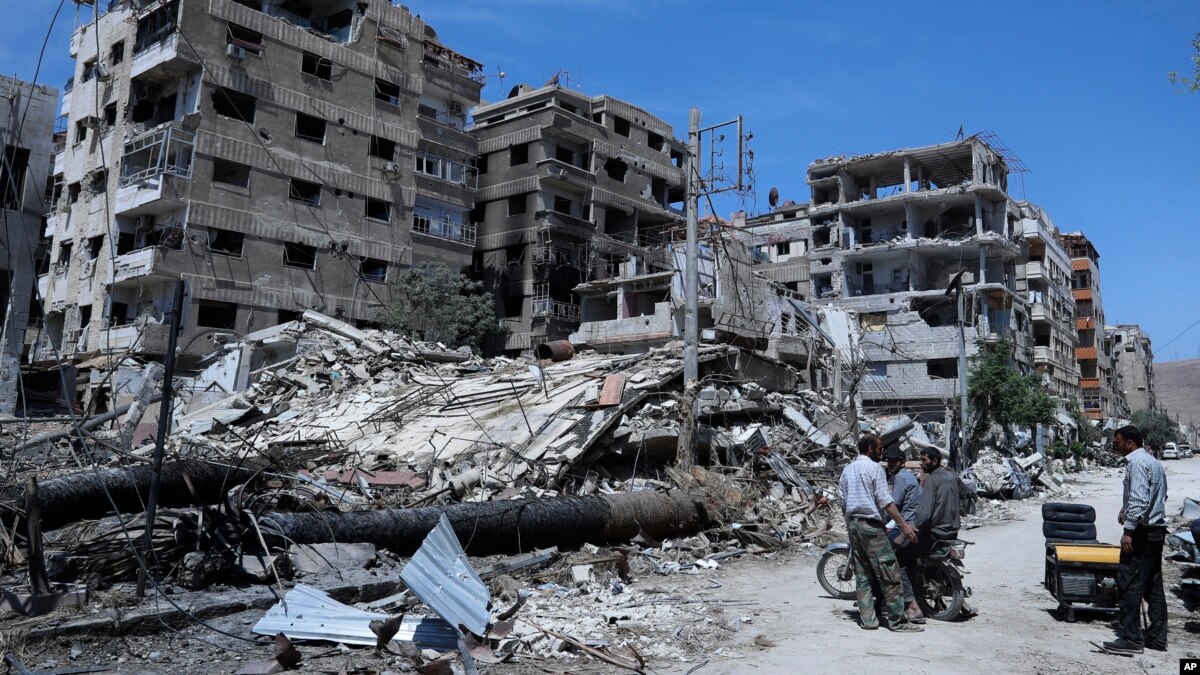
Shots were fired a United Nations team doing reconnaissance in Douma, Syria, scene of a suspected chemicals weapons attack, U.N. sources tell VOA.
Members of the team were not injured and returned to the capital Damascus, the sources said.
Inspectors from the global chemical weapons watchdog are still waiting to enter Douma to determine if such weapons were used in an attack there earlier this month that killed dozens of people.
There was confusion Tuesday about whether the team of international experts had arrived in the area.
Syrian state TV and the White Helmets volunteer rescue group said separately that a fact-finding team from the Organization for the Prohibition of Chemical Weapons had come to Douma.
But a U.S. State Department spokeswoman contradicted those reports on Tuesday afternoon. "Our understanding is that the team has not entered Douma," Heather Nauert said.
The inspectors had arrived in Syria on Saturday, the day that the U.S., Britain and France launched a barrage of missiles targeting Syrian chemical weapons facilities. But the inspectors had not initially been allowed to go to Douma, near the Syrian capital of Damascus, in an attempt to verify the nature of the suspected gas attack on April 7.
The U.S. and its allies blame the regime of Syrian leader Bashar al-Assad for the deadly chemical weapons attack. Russia and Syria said no chemical attack occurred at Douma.
Ken Ward, the U.S. ambassador to the chemical weapons watchdog, claimed Monday that the Russians had already visited the site and "may have tampered with it," which Moscow rejected.
In the hours immediately after the missile strike, U.S. President Donald Trump basked in its success, saying, "A perfectly executed strike last night. Thank you to France and the United Kingdom for their wisdom and the power of their fine Military. Could not have had a better result. Mission Accomplished!
But on Tuesday French President Emmanuel Macron adopted a more nuanced view of the attack.
"Three countries have intervened, and let me be quite frank, quite honest — this is for the honor of the international community," he said in the French city of Strasbourg. "These strikes don't necessarily resolve anything, but I think they were important."
U.S. military officials have said the strikes were designed to send a powerful message to Syria and its backers, showing the U.S., Britain and France could slice through the nation’s air defense systems at will.
“We did what we believe was right under international law,” U.S. Defense Secretary Jim Mattis told reporters at the Pentagon Tuesday.
“I hope that this time the Assad regime got the message,” he added.
Jeff Seldin contributed to this report from the Pentagon
No comments:
Post a Comment